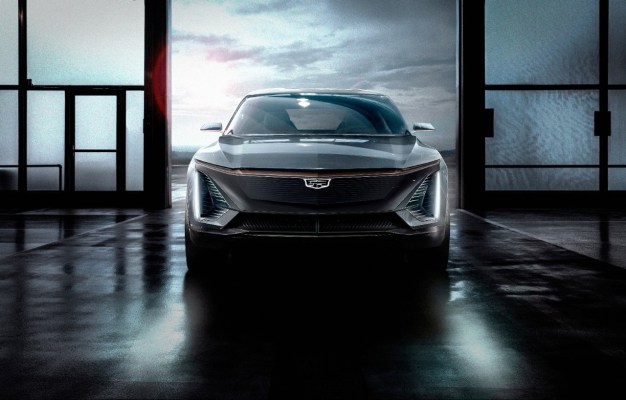
General Motors said it will spend $27 billion over the next five years on the development of electric vehicles and automated technology, a 35% percent increase that exceeds the automaker’s investment and gas and diesel and is an effort bring products to market faster.
More than half of GM’s capital spending and product development team will be devoted to electric and electric-autonomous vehicle programs, the company said.
The U.S. automaker is also accelerating its go-to-market timeline and adding more EVs to its portfolio plans. GM laid out Thursday an ambitious plan to bring 30 new electric vehicles to a global market through 2025. The company had previously committed to 20 EVs by 2023. More than two-thirds of those launches will be available in North America and every one of GM’s brands, including Cadillac, GMC, Chevrolet and Buick will be represented, according to the automaker.
The acceleration of GM’s plans, which includes pushing the launch of its Cadillac Lyriq SUV ahead by nine months to the first quarter of 2022, comes amid a flurry of EV activity in the automotive industry. Numerous startups have announced mergers with special purpose acquisition companies to become publicly traded companies — a move aimed at securing the capital needed to scale. Legacy automakers like Ford and VW Group are ramping their own EV plans. Tesla, the established electric automaker in the field, is building a factory in Austin and another Berlin to boost production and add more vehicles to its portfolio. By the end of next year, consumers will have more EV options than ever before, including the Lucid Motors Air, Rivian R1T pickup truck and Ford’s Mustang Mach-E.
“We don’t want to just participate, we want to lead,” said Doug Parks, GM executive vice president of Global Product Development, Purchasing and Supply Chain, during a call with reporters ahead of the announcement. “Tesla’s got a good jump, and they’ve done great things and so they’re formidable competitors. There’s a lot of startups and everyone else invading the space, and we’re not going to secede leadership there.”
GM’s strategy is to condense the typical 50-month development cycle by scrapping traditional methods and adopting a less bureaucratic team-focused approached, Parks said. For instance, the design to market timeline for the electric GMC Hummer will be 26 months, he said. Parks added that the early work on its Ultium battery architecture and drive units — the underlying foundation of its next-generation EV program — is allowing the company to move quickly.
As a result, Parks said GM is moving up three GMC electric vehicles — all of which are using its new Ultium battery — and four Chevrolet EVs, including a pickup and a compact crossover, as well as four Cadillacs. GM said Buick’s lineup will include two Ultium-based EVs.
GM is also on a hiring spree in a bid to keep pace and ultimately surpass its competition. The company said earlier this month it is hiring 3,000 electric system, infotainment software and controls engineers, plus developers for Java, Android, iOS and other platforms.
GM also has a joint venture with LG Chem to develop and supply the battery cells for its modular architecture. This modular architecture, called “Ultium,” (same as the battery) will be capable of 19 different battery and drive unit configurations, 400-volt and 800-volt packs with storage ranging from 50 kWh to 200 kWh, and front, rear and all-wheel drive configurations. At the heart of the new modular architecture will be the large-format pouch battery cells manufactured at this new factory.
The two companies previously committed to invest up to $2.3 billion into the new joint venture, as well as establish a battery cell assembly plant on a greenfield manufacturing site in the Lordstown area of Northeast Ohio that will create more than 1,100 new jobs.
The factory, which is already under construction, will be able produce 30 gigawatts hours of capacity annually. To put that into perspective, Tesla’s factory in Sparks, Nevada, which is part of a partnership with Panasonic, has a 35 GW-hour capacity.






















